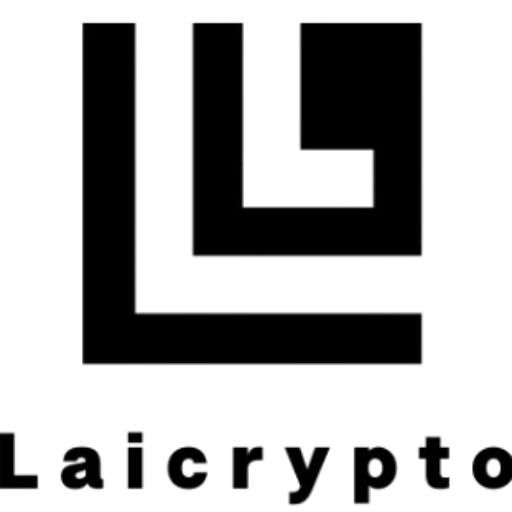Author: Michael Johnson
Friends, In the time since the last Devcon announcement, the state of the Ethereum ecosystem has been electric. We’ve realized critical milestones on the Eth2 roadmap, as well as countless breakthroughs and major progress by teams across the ecosystem. We are incredibly excited to celebrate these achievements with all of you at Devcon in Bogota soon. That said, we need to talk about timing, because we’ve made the difficult decision to hold off on reuniting for a bit longer rather than pushing ahead with our August target (☔️✔). While nothing is guaranteed given the ongoing pandemic, we’re hopeful that a…
Our intrepid grantees have been keeping busy as always – read on for some recent accomplishments 🏆 ENS ENS (Ethereum Name Service) runs on the Ethereum blockchain, but it’s not just for ETH addresses! ENS maps human-readable domain names to locations all across the distributed web, including ethereum and other blockchain addresses, Tor .onion addresses, decentralized websites and data hashes stored on IPFS, and more. ENS continues to expand its reach, with recent integrations including: That’s far from everything – read the ENS 2020 Retrospective for a recap of a pretty packed year, follow ENS on Twitter @ensdomains and check…
We’re excited to announce the grantees selected for the recent staking community grants round. This grants round invited proposals that make the Ethereum staking experience easier, safer, and more secure. We were thrilled to see all of the great work proposed by these teams, and we’re looking forward to continuing to find new ways to support the ecosystem. In the meantime, if you’re working on something in this space and could use support, consider submitting a project inquiry with the Ecosystem Support Program. More than $1M has been allocated across 25 grants in 4 different categories: categoryamount (USD)community / education391,800.00new…
tl;dr Eth2 Workshop: Eth1+Eth2 Merge and Sharding Last week, the EF eth2 research team hosted an online workshop focused on the two major upgrades slated for the beacon chain — the eth1+eth2 merge and sharding. Client devs — both eth1 and eth2 — and researchers from across the stack joined to listen for a dynamic set of presentations, Q&A, and discussions. This session — including talks by Dankrad, Vitalik, Mikhail, and Guillaume — was all live streamed and is available for your consumption! Just a quick plug for all the grants announced this week for the Staking Communty Grants round.…
This month, we’ve got the latest on from two groups doing great work to grow the Ethereum ecosystem! Couger for education and community building in Japan Specializing in AI, Couger might seem like an unlikely champion of Ethereum education! However, Couger has not only explored the intersection of Ethereum and AI and piloted a zero knowledge voting protocol – they’ve also become avid educators and collaborators in their native Japan. Couger received a sponsorship in 2020 for their ETHTerakoya meetups as well as a series of workshops and working groups. Couger was recently awarded a second grant to continue and…
Oh wow, it’s been a while… over 1.5 years since we’ve released Geth v1.9.0. We did do 26 point releases in that time frame (about one per three weeks), but pushing out a major release is always a bit more special. The adrenaline rush of shipping new features, coupled with the fear of something going horribly wrong. Still unsure if I like it or hate it. Either way, Ethereum is evolving and we need to push the envelope to keep up with it. Without further ado, please welcome Geth v1.10.0 to the Ethereum family. Here be dragons Before diving into…
Ethereum is very much a global community, but within that larger ecosystem lives a vast and vibrant web of local, grassroots communities. These local community nodes are a Schelling point for thousands of Ethereans, often organized around a shared geography, language, or on-the-ground meetup. They’re also a gateway for onboarding thousands of soon-to-be Ethereans, be it through meetups, talks, hackathons, study groups, and the like. Which means they’re home to countless opportunities for growing the ecosystem. As such, the Ethereum Foundation is continuously exploring ways to support and learn from local communities. To this end, the EF has piloted the…
TL;DR Berlin is ready to be deployed!We’re moving fast: the first testnet to upgrade, Ropsten, is scheduled to upgrade on March 10th. Mainnet is scheduled for April 15th.If you are running an Ethereum node, you should upgrade it to a Berlin-compatible version ASAP for testnets and before April 7th for mainnet.See below for the list of Berlin-compatible client versions and details on the EIPs included in the upgrade.The Besu client has reported a bug in their previous Berlin release. Besu users should upgrade to version 21.1.2. Berlin Timing After months and months of planning, Berlin is finally here! The upgrade,…
tl;dr Finalized: rebranding the blogUpgrade your nodes! Finalized, rebranding the blog If you’ve read my recent writings or listened to me speak about Ethereum and this grand upgrade that’s in the works, you’ve perhaps noticed that I’m not only shying away from discussing “phases” (instead, referring to a series of independent upgrades), but that I’ve also been attempting to put the terms “eth1” and “eth2” to rest. I’ve spoken about these being terrible terms and wrote about it again in January’s “The State of Eth2”. What we call “eth2” is a series of major upgrades to Ethereum’s consensus-layer — to…
Community & educationETHTerakoyaEducational initiative by Couger organizing public meetings, workshops, and working groups producing prototypes and standards.Community & educationEthereumCNChinese language resources and community building, including eth2 resources and a program for university students.Community & educationTruffleSponsorship of the TruffleCon 2020 virtual developer conference.Community & educationCreacion de Contratos Inteligentes con EthereumScholarship for 11 independent developers to attend the National University of Bogota smart contract development course “Creacion de Contratos Inteligentes con Ethereum.”Community & educationDescubriendo BlockchainSpanish-language Ethereum education course with each lecture given by a different speaker, primarily featuring experts from LATAM communities.Community & educationIndia Ecosystem Development EventsOrganization of virtual developer events targeting…


